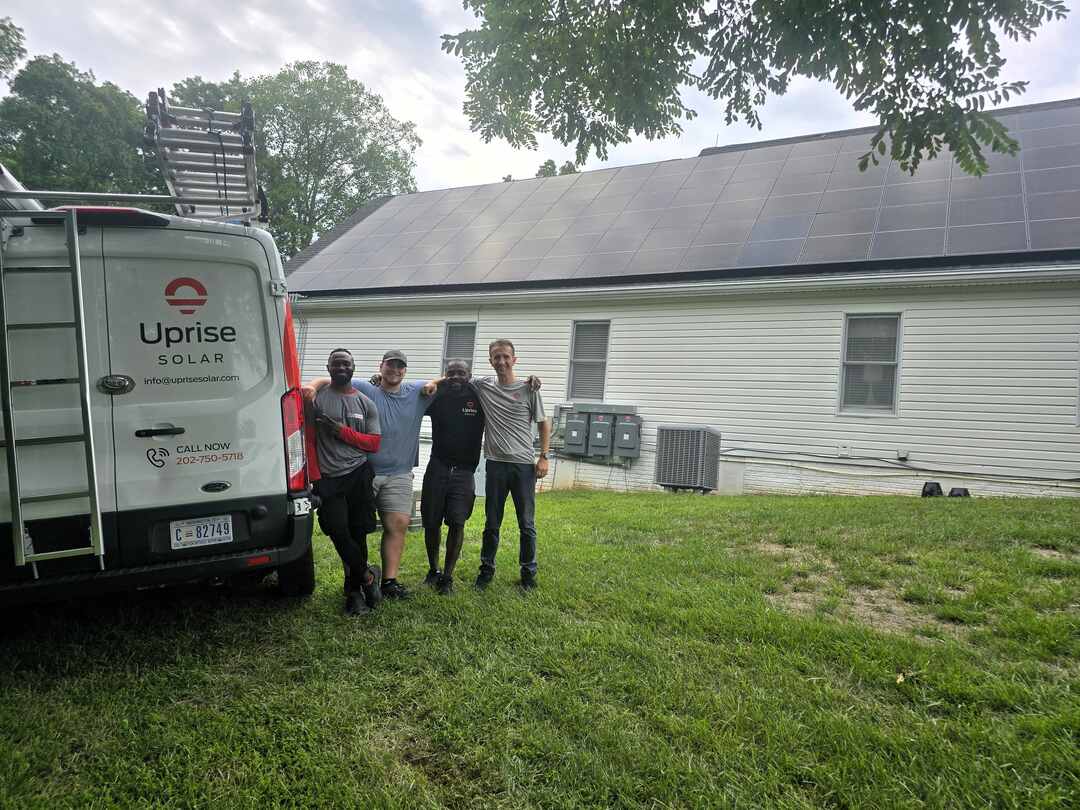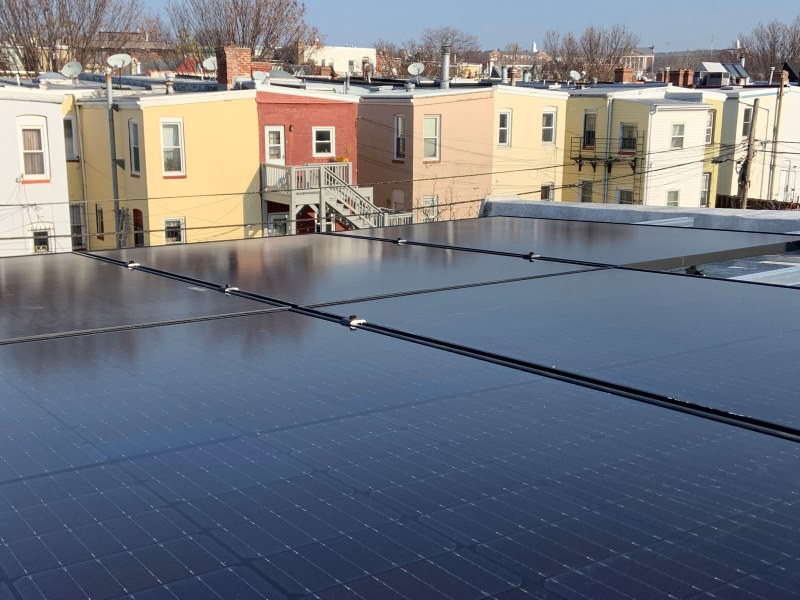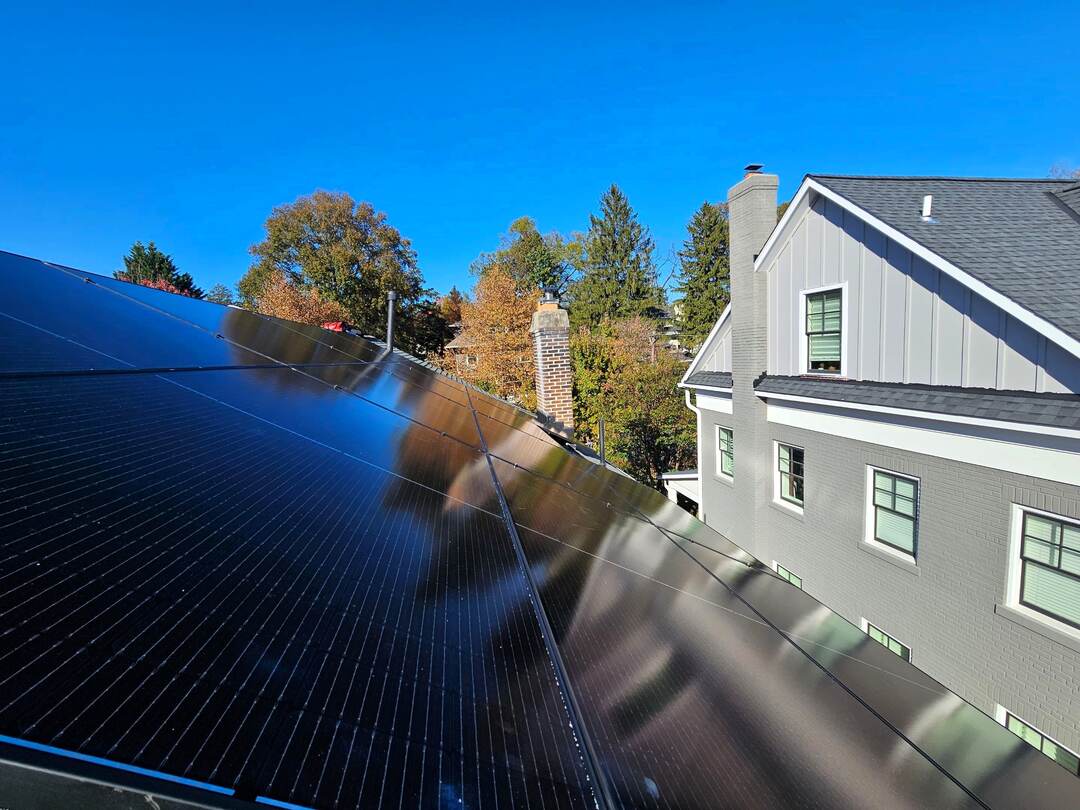
Converting to solar power is one of the most effective ways to make a significant environmental impact in your everyday life. However, solar companies in Washington, DC often notice people harbor misconceptions about solar that may impact their choices. These can range from thinking solar is too costly to understanding how the process works. We’ll debunk common solar myths so you can make an informed choice.
Misconception 1: Solar Is Only For Wealthy Homeowners
Many people assume they can’t afford solar panels, so why bother? But solar technology has never been less expensive! The panels and equipment have gone down in price over time thanks to consistent innovation within the industry.
Federal and state incentives have further helped bring down the cost of an array. These incentives will be specific to the size of your system and your location. Now is a great time to take advantage of these incentives and go green; the federal solar tax credit, in particular, will expire in 2035 unless Congress opts to renew it.
If you’re more interested in the benefits of clean energy rather than owning the system, consider alternative financing options such as Uprise’s solar PPA, which allows you to go solar at no cost. We’re on a mission to make solar accessible for everyone, no matter your budget, and our no-cost program is one way we’re working toward that goal.
Misconception 2: Solar Panels Require Constant Maintenance
Solar panels are technologically advanced, but this does not correlate with constant, annoying maintenance. Solar panels require minimal care once installed. And our DMV rain will typically take care of cleaning the panels for you.
Solar panels require little attention because they are highly durable. The solar panels we install come with a warranty, typically 20-25 years. And if you participate in a solar PPA with Uprise, we’ll handle any maintenance for the first 20 years.
Misconception 3: Solar Panels Don’t Work Without The Sun
Because solar panels derive energy from the sun, many people assume they stop working during cold weather or when clouds block the sun. The truth is that solar panels function in many conditions. Just as humans can still get sunburns on a cloudy day, the photovoltaic cells of solar panels still receive UV radiation through cloud cover.
Fun fact: solar panels actually operate more efficiently on chilly, sunny days. That’s because cold temperatures actually increase the voltage of solar panels. Resistance lowers and electrical current can flow quicker.

Misconception 4: Solar Power Isn’t Reliable
Because the sun doesn’t shine all the time, many homeowners assume their access to electricity won’t be reliable. While it is true that solar panels don’t generate energy overnight, there are plenty of ways to maintain electricity access.
In the DMV, your solar system will be grid-tied, meaning your home will still be connected to the grid, and you can draw power from your utility company when solar is insufficient for your energy needs. This method of operating reduces utility bills without compromising access, and enables you to sell any excess power back to your utility company through net metering. On-grid and off-grid systems also can use a solar battery to store excess energy for later use.
Misconception 5: Solar Panels Will Damage My Roof
Solar panels are typically installed on rooftops, so homeowners are naturally concerned about possible damage to their roofs. Uprise adheres to safe and professional installation practices, giving you confidence in your choice to go green. The roof attachments we use for pitched roofs come with water seal ratings, and our flat roof attachments connect with a sealant. (Learn more in our installation day blog post.)
In fact, rooftop solar panels can even be good for your home! They actually protect the part of your roof they cover. They shield your roof from the elements, such as sunlight that deteriorates shingles, and keep the roof at a lower temperature so your AC doesn’t have to work so hard.
Misconception 6: Solar Energy Is Not Good For The Environment
Doesn’t it take a lot of energy to manufacture solar panels, making them bad for the environment? On average, a solar array takes no more than four years to recover the energy and carbon dioxide pollution that went into making the system. There is an environmental cost, but it is repaid quickly, resulting in long-term advantages. Solar panels are designed to last for decades, reducing your long-term carbon footprint and contributing to sustainable energy goals. Solar also improves air quality.
You may also be wondering about solar panel recycling. While recycling solar panels isn’t common in the United States (yet!), it is possible, and Uprise spoke with two companies doing it right now.

Get The Facts From Solar Experts
If you’re not a solar installer, it can be hard to separate fact from fiction. We encounter a lot of misinformation about solar out there — and in part, this is simply because solar is a relatively newer industry. If you’re confused, we’re happy to answer your questions and clear up solar myths for you!
Many incentives and programs make solar more accessible than it has ever been. Uprise’s no-cost solar program is a great place to start. Contact us online or by phone at (202) 280-2285 to receive personalized advice and learn more about how solar power can fit your needs.
